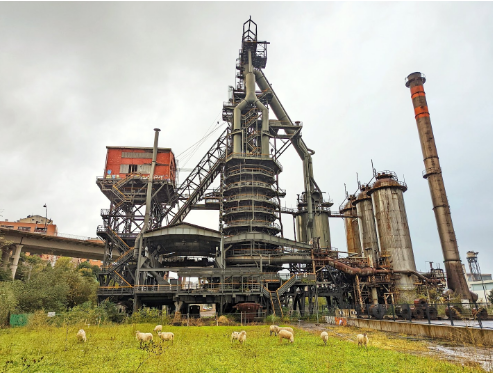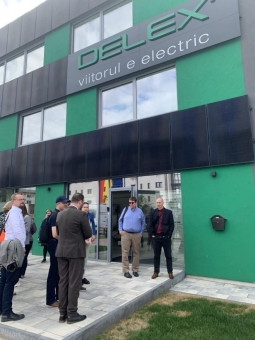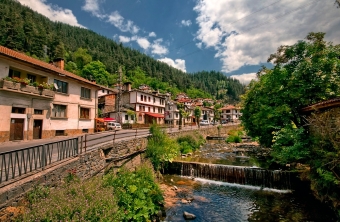Písek became part of the community of seven European cities, which succeeded in front of the European Commission with the ambitious project +CityxChange, the purpose of which is the decentralization of electricity trading. The project is slowly but surely coming to an end, and as part of the project mutual partner visits to cities are taking place, which bring many experiences and changes.
This year, our Smart Písek office visited Sestao in Spain, Alba Iulia in Romania and Smolyan in Bulgaria. We visited Sestao in March of this year. Sestao is a town and municipality with 27,296 inhabitants located in the province of Biscay in the autonomous community of the Basque Country in northern Spain. The main objective of the visit was to focus on energy communities, sustainability, partnership with industrial partners and the so-called "storytelling workshop". We had the opportunity to see, for example, the district heating in Sestau, which runs on biomass, or the Alto Horno ("blast furnace"), which focuses on brownfield carbon sequestration using prairie and sheep. We also walked the Puente Colgante suspension bridge, which is a UNESCO World Heritage Site and was designed by Mr. Eiffel's student. Among other things, we also completed a workshop on the topic of developing various global measures so that they can be applied and modified locally. Last but not least, we discussed the topic of energy communities and their use.

Alto Horno
Our next stop was Alba Iulia, where we visited in May. Alba Iulia (Karlovský Belehrad in Czech) is surrounded by the Mureș River. Approximately 64 thousand inhabitants live here. On the agenda we had a discussion about energy communities, project financing and new business models, climate neutrality and also the creation of PEBs (positive energy districts). We listened to a lecture on citizen engagement, which Alba Iulia specializes in, and we also focused on alternatives for PEB implementation. We also tried playing the game “Positicity+” that they created in our partner city Trondheim. It is a board game that educates on the topic of energy exchange. In the afternoon we had a visit to Delphi Electric. It is the city's first positive energy self-sustainable high-tech building built by a local energy champion. But we also looked at the Alba Carolina citadel, which is the largest citadel in Romania and was built between 1715 and 1738. The site where it was built was previously home to two other fortifications, the Legio XIII Gemina Roman Castle and the Medieval Citadel of Bălgrad.

Delphi Electric building
Our last trip so far was in June to Smolyan, Bulgaria. This city is located in southern Bulgaria in the central part of the Rhodope Mountains in the valley of the Cherna River, a tributary of the Arda. It is the administrative center of the municipality of the same name and the Smolyan region and has less than 30,000 permanent residents. For example, we dealt with best practices for the internal organization of municipalities in terms of solving climate and energy challenges at the local level, energy poverty, building a PEB or a single point of contact for energy efficiency, and what are the options for municipalities, including pros and cons. Our partners introduced us to Sky Hub Smolyan, the first shared space in the city for the development of the IT community, start-ups and freelancers who do not yet have their own office. They also showed us their PEB district and examples of good practice in energy communities. From the monuments, we visited the village of Shiroka Laka. It is a renowned architectural and folklore reserve.

Shiroka Laka
In September, we still have a trip to Võru, Estonia, and we will end the +CityxChange project in Trondheim, Norway. Due to the nature of the project, the need for close cooperation with the public, especially with the homeowners, was a completely new experience. The project team had to adopt a large number of new methods of supporting communication between citizens and the city and adapt many of them to local conditions and mentality. From the point of view of the city management, a fundamental finding is the need to strengthen the principle of decision-making based on data and the consistent fulfillment of set goals or indicators in strategic documents.